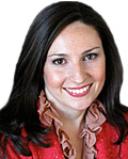What is a hook up?
As a not-that-old, not-that-out-of-touch college professor who teaches classes on the sociology of marriage, family and gender this is one of my favorite questions to ask a class of undergraduates for three reasons: It wakes 'em up; everyone is interested in the answer; and it stirs up quite a debate.
But in the years I've been asking this question, there's never been a class consensus. Some students tell me it's sexual intercourse, with a zero-to-sex pick-up speed, within hours (and many beers) of a first meeting. Others tell me hooking up means making out or kissing, and might not happen until two people have hung out together in a group of friends for a while.
So a few months back, I put it to the readers of a young-adult spiritual seekers website called BustedHalo, where I've been a regular columnist for five years. More than 250 readers responded.
As college students head back to school, here are two of the headlines worth checking out:
• Only a third of college students define a hook-up as sex. Translation: For two-thirds of college students, "hooking up" means something less than sex-probably a lot of smooching and touching with clothes on. (Parents, yes, you can let out that sigh of relief. College kids, no, you don't have to say you're having sex to be cool.)
• Post-hookup, a follow-up date is rarely expected. While the majority of respondents would like these hook-ups to be emotionally meaningful, they've braced themselves for the worst: About half expect nothing - no phone call, no text message, no date - after the event. It was "just casual."
Now, before you jump on me methodologically, I'll put two caveats up front: Yes, I posted this survey on a website that skews toward those with some Catholic background. But studies have shown that self-identified Catholics don't act much differently than those of any other faith background (or those with no religious orientation). No, my online survey wasn't random or necessarily statistically representative of young adults. But the findings are in keeping with findings from Paula England at Stanford University, among others. And one way to make it more representative would be to get a greater number of responses, so take the survey now to let your voice be heard.
Welcome back to school, folks. Let's get some hot-and-heavy discussion going!


